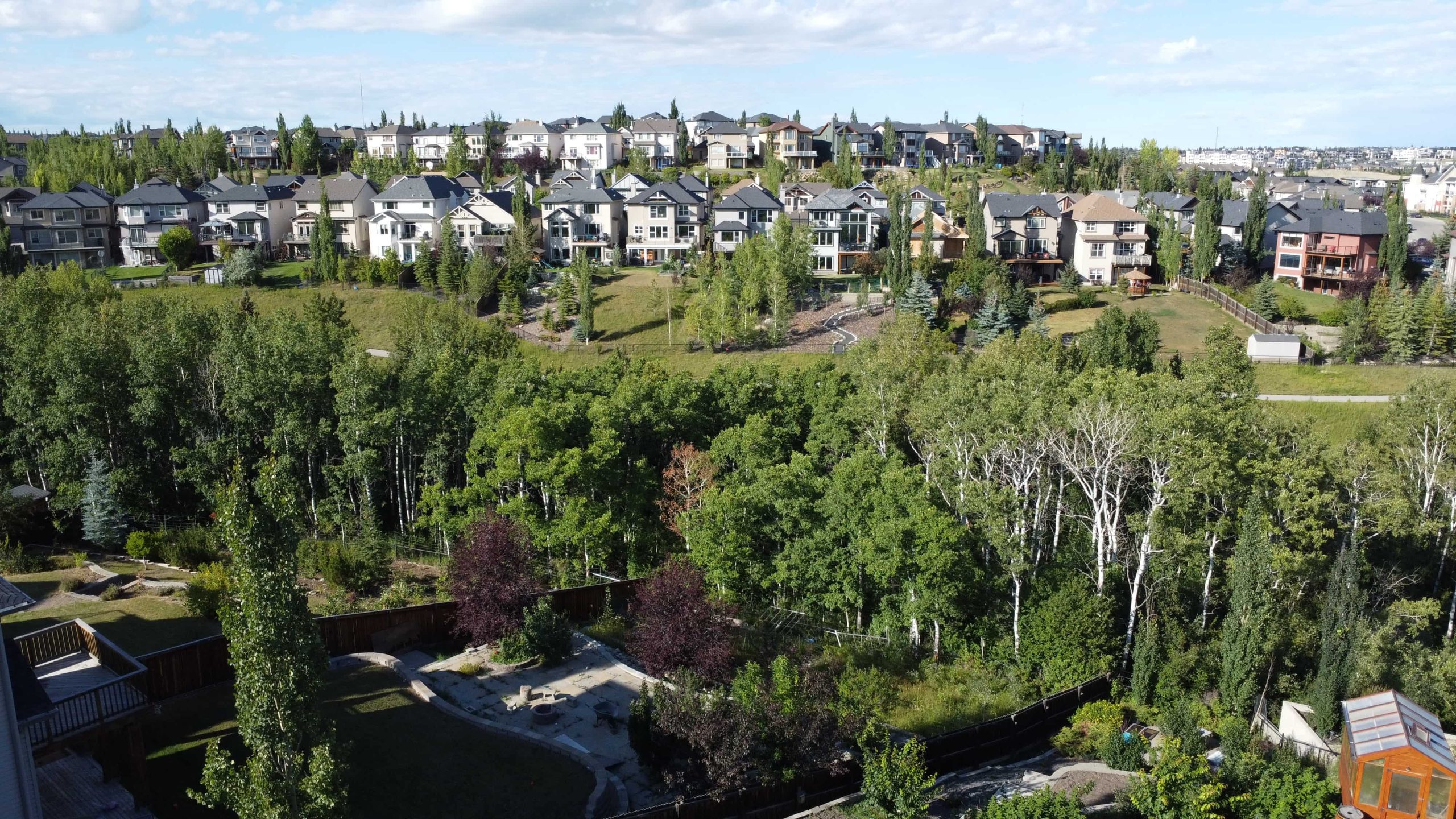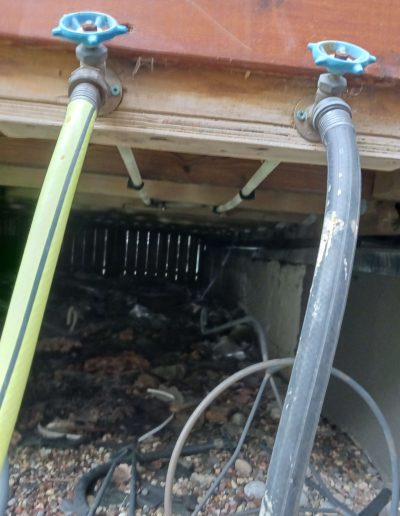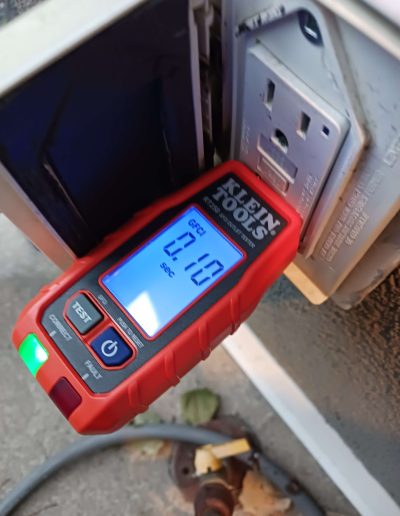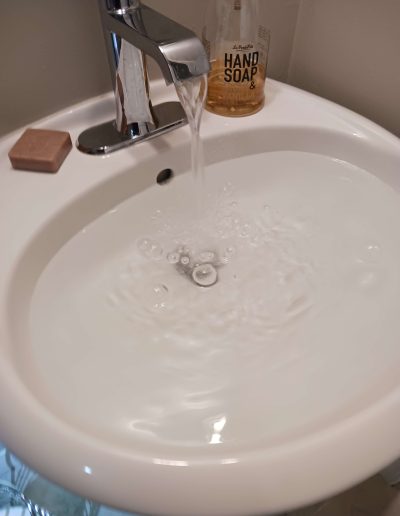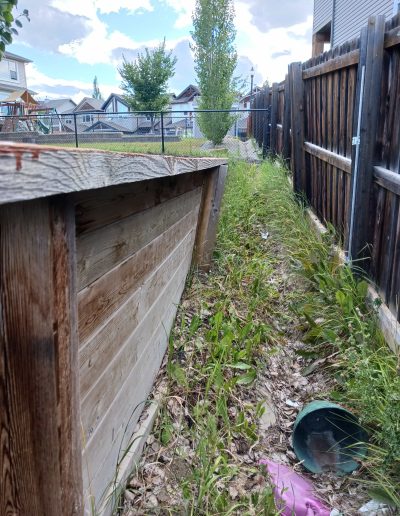Your Complete Guide to Home Inspections in Calgary

-
Buying or selling a home is a significant decision that involves a multitude of considerations. One crucial step that stands out in this process is the home inspection. If you’re in the market for a home, or preparing to sell your property for the first time then you’ve likely heard of the importance of conducting a home inspection. But what exactly is a home inspection, and why is it an integral part of the real estate journey? This complete guide to home inspections in Calgary will have you completely up to speed on a home inspection’s purpose, benefits, what areas of a home they cover, and what to expect during your own inspection.
UNDERSTANDING THE HOME INSPECTION PROCESS
- After scouring the MLS, and having your favorite realtor show you a multitude of properties you’re finally ready to make an offer on a property. As part of your offer your realtor should encourage you to add a condition that makes the offer contingent on a home inspection. Appearances can be deceiving, and the reality is that you likely spent no more than 15 minutes in the home you’re making an offer on. A home inspection is your key to uncovering hidden issues that might not have been evident during your casual walkthrough. At its core, a home inspection is a systematic examination of a property’s condition. It’s performed by an unbiased third party who aims only to provide a comprehensive understanding of the home’s strengths, weaknesses, and potential areas of concern.
WHO BENEFITS FROM A HOME INSPECTION?
- Home inspections serve a diverse audience. Whether you’re a prospective homebuyer looking to make an informed decision or a homeowner planning to sell, a home inspection offers invaluable insights. For buyers, it provides peace of mind by revealing any potential problems that might affect the home’s value or safety. Sellers benefit by addressing issues beforehand, ensuring a smoother transaction and potentially increasing the home’s marketability.
THE ESSENTIAL AREAS COVERED BY A HOME INSPECTION
- A thorough home inspection encompasses various components and systems within a property. Following the home inspection standards of practice, here’s an in-depth look at what a home inspector evaluates and how they identify potential issues:
-
Roofing:
The roofing system is more than just shingles; it includes flashing, gutters, and drainage. Inspectors look for signs of missing or damaged shingles, leaks, and deteriorating flashing. They also evaluate the overall condition and lifespan of the roof.
-
Exterior:
The exterior walls, windows, doors, and foundation are carefully examined for cracks, water damage, and signs of poor maintenance. Inspectors can identify issues that might lead to energy inefficiency or pest intrusion.
-
Structural Components:
The foundation of a home is its backbone. Inspectors check for cracks, settling, and signs of water damage that could compromise the structural integrity.
-
Electrical Systems:
Beyond just checking outlets, inspectors evaluate the electrical panel for safety and compliance. They identify outdated wiring, potential fire hazards, and overloaded circuits.
-
Plumbing:
Inspectors assess pipes, fixtures, and water heaters for leaks, corrosion, and functionality. They also check for proper water pressure and drainage.
-
HVAC (Heating, Ventilation, and Air Conditioning):
Heating and cooling systems are put through their paces. Inspectors look for signs of wear, inefficiency, and potential carbon monoxide risks.
-
Insulation and Ventilation:
Proper insulation and ventilation contribute to energy efficiency and comfort. Inspectors evaluate the insulation’s condition and assess ventilation in attics and crawl spaces.
-
Interior:
The interior spaces are scrutinized for visible defects like cracks, stains, and signs of water damage. Staircases and railings are also assessed for safety.
-
Fireplaces:
If applicable, inspectors examine fireplaces and chimneys for proper operation and any safety concerns related to buildup or functional issues.
-
Appliances:
For pre-purchase inspections, included appliances are tested for proper operation. Inspectors identify potential issues that might affect functionality.
-
Attic and Crawl Spaces:
These areas are checked for proper insulation, ventilation, and any signs of water damage, which could lead to mold growth or other issues.
-
Basement and Foundation:
The lowest level of the home is inspected for moisture intrusion, cracks, and signs of structural problems.
-
- By meticulously evaluating each of these areas, home inspectors provide a comprehensive assessment that empowers buyers and homeowners to make informed decisions.





WHAT IS NOT INCLUDED IN A STANDARD HOME INSPECTION
- While a home inspection provides a comprehensive assessment of a property’s condition, it’s important to recognize its limitations. Certain specialized inspections and testing services fall outside the scope of a standard home inspection. It’s worth noting that home inspectors are knowledgeable about these areas and can alert you to potential concerns. However, if an issue falls beyond the scope of a standard home inspection, inspectors may recommend seeking the expertise of third-party specialists for the following:
-
-
WETT Inspections:
A WETT (Wood Energy Technology Transfer) inspection focuses on the evaluation of wood-burning appliances such as fireplaces and stoves. While home inspectors are trained to identify visible issues with these appliances, a specialized WETT inspection delves deeper into their safety and compliance with regulations.
-
Radon Testing:
Radon is a naturally occurring radioactive gas that can seep into homes and pose health risks. Although home inspectors can alert you to signs of potential radon entry, dedicated radon testing requires specialized equipment and expertise. Radon testing provides accurate measurements of radon levels and guides appropriate mitigation strategies.
-
Mold Testing & Sampling:
Home inspectors are skilled at identifying visible signs of mold and moisture issues. However, mold testing and sampling involves collecting samples and sending them to a laboratory for analysis. This in-depth assessment is performed by specialists to determine the type and concentration of mold present to determine if it’s hazardous.
-
Asbestos Testing & Sampling:
The identification of asbestos-containing materials similarly requires specialized training and laboratory analysis. While home inspectors can identify potential asbestos containing materials, testing and sampling must be conducted by professionals to confirm a materials asbestos content.
-
Sewer Scope Inspections:
Inspecting sewer lines and plumbing systems beyond visible access points requires specialized equipment. Sewer scope inspections involve sending a camera through the sewer lines to identify blockages, leaks, or other issues. These inspections are typically performed by plumbing professionals.
-
Septic Field Inspection:
The assessment of septic fields is another specialized area that goes beyond the scope of a standard home inspection. Inspecting the functionality and condition of septic systems requires expertise and equipment specific to septic systems.
-


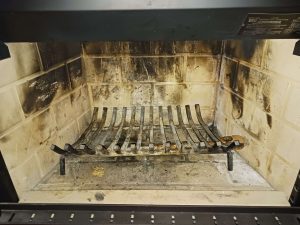
-
This approach ensures that you receive accurate and comprehensive assessments in specialized areas, contributing to your overall understanding of your property’s condition. If your property requires testing or assessment beyond the scope of a standard home inspection, we’re here to guide you toward qualified professionals who can address your specific needs.
It’s important to also recognize that a home inspection isn’t aimed at capturing cosmetic issues or superficial details. While a property’s visual appeal certainly matters, the primary purpose of a home inspection is to delve into the major building systems and overall functionality of the structure. Inspectors prioritize the assessment of structural integrity, safety, and the operational effectiveness of crucial building systems.
CHOOSING A HOME INSPECTOR & SCHEDULING A HOME INSPECTION IN CALGARY
- Booking a home inspection is a straightforward process that offers immense value. Here’s how it typically works:
- Select a Reputable Inspector: Research and choose a certified and experienced home inspector. The Calgary Home Inspector Corp. stands out for its expertise in a holistic approach.
- Contact the Inspector: Reach out to the inspector to discuss your needs, schedule, and any specific concerns you have about the property.
- Agree on a Date and Time: Coordinate with the inspector to find a suitable date and time for the inspection. Inspections usually take around 3 hours. If applicable, this time will need to be coordinated with your realtor and the party selling the home.
- Inspection Day: On the appointed day, the inspector arrives at the property and begins the comprehensive evaluation. You’re encouraged to attend the inspection to gain firsthand insights into the property’s condition.
Alternatively, if you want to jump right in select home inspectors will let you book your home inspection yourself directly online. You’ll receive a confirmation email for the booking, and can expect to see your home inspector at the property come the selected date and time.
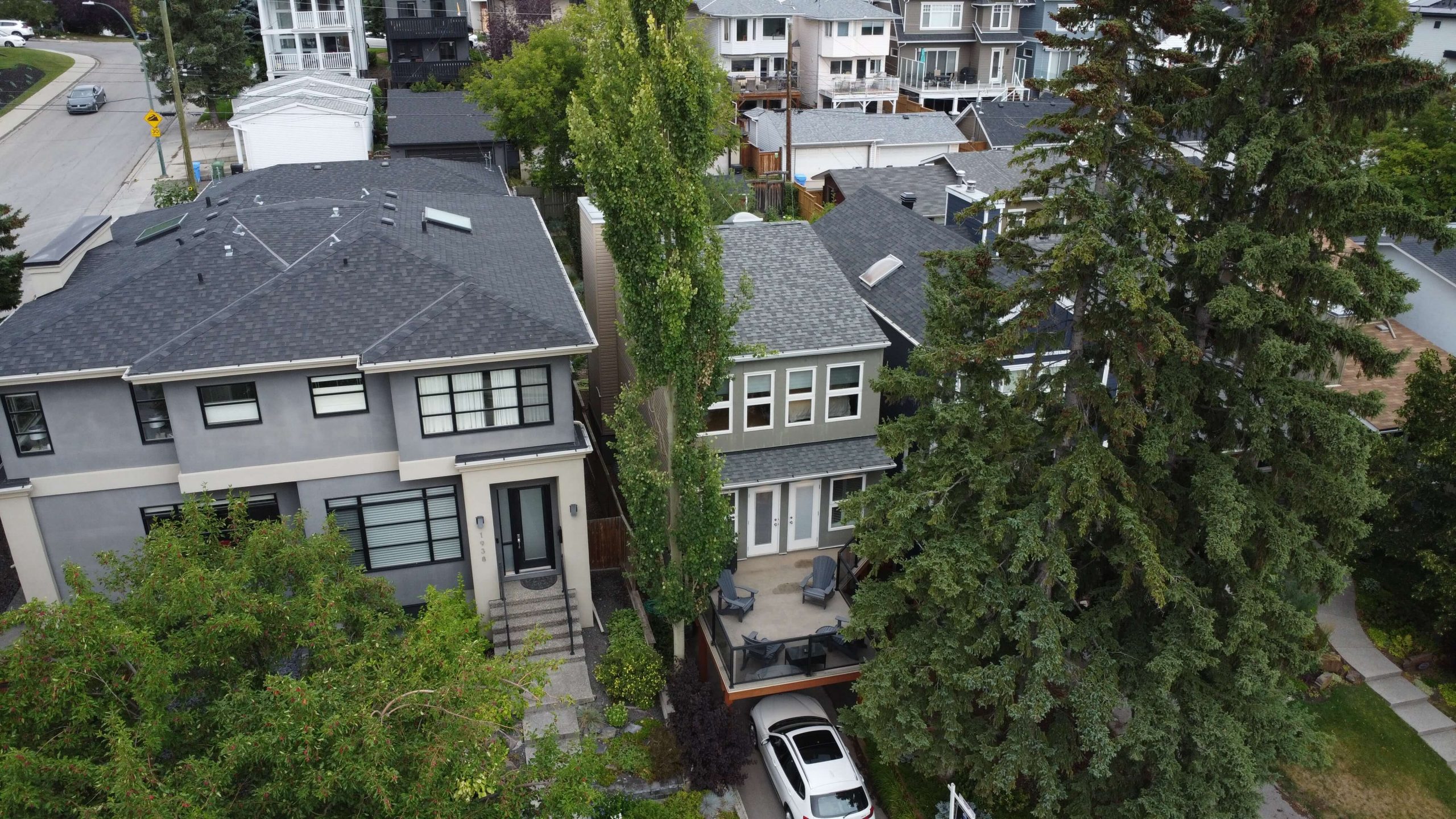
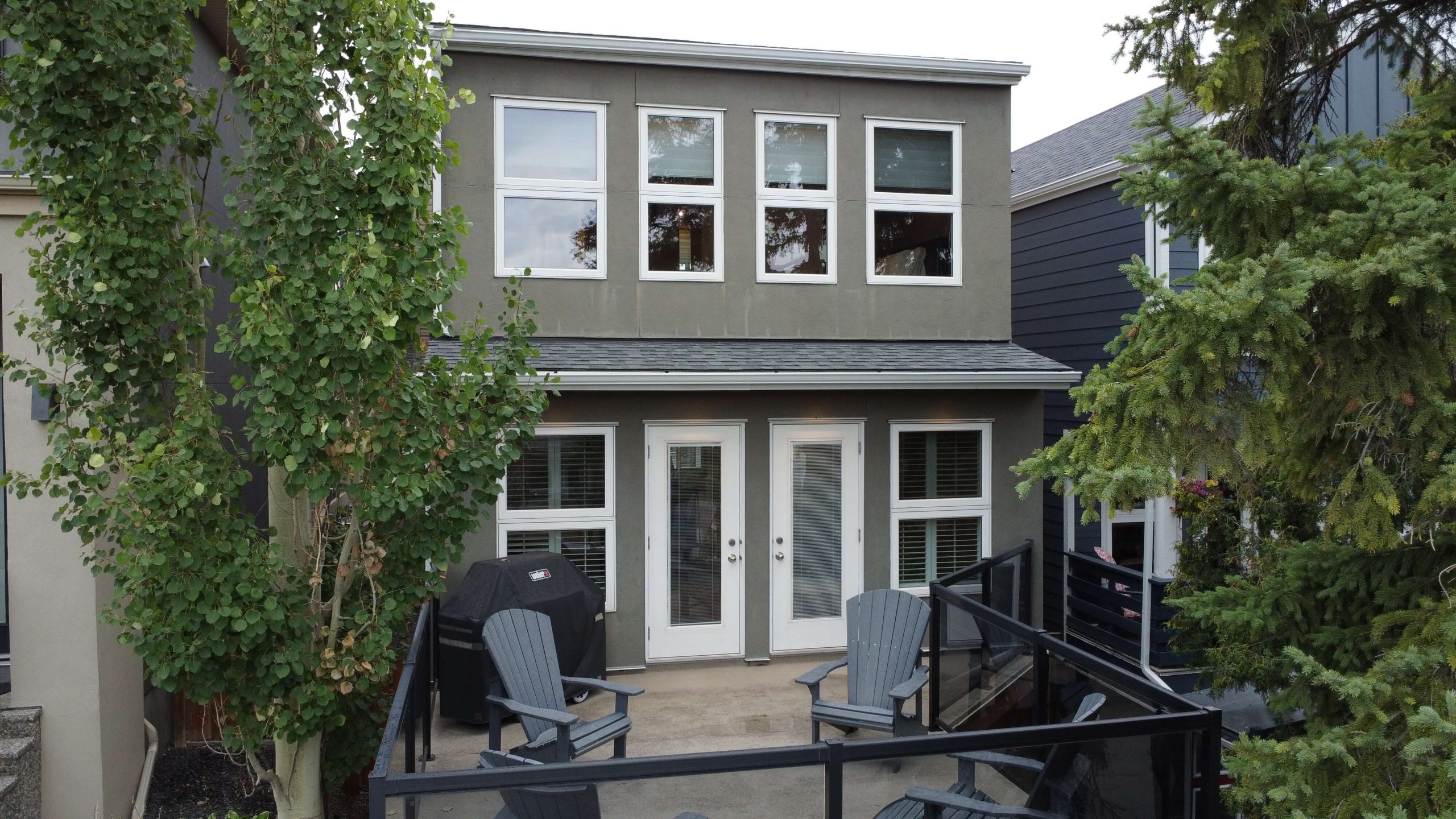
SELLERS: PREPARE YOUR HOME FOR THE INSPECTION
Whether you’ve scheduled an inspection yourself for pre-listing, or your home has been scheduled for inspection by a buyer you’ll want to prepare! Properly preparing home inspections in Calgary can streamline the process, provide accurate results, and contribute to a positive experience for both you and the inspector. Here’s a comprehensive guide on how to get your home inspection-ready:
1. Clear Access:
Ensure that all areas of your home are easily accessible. Clear away clutter, personal belongings, and any items that may obstruct the inspector’s view. This includes ensuring that attics, crawl spaces, and basements are accessible and free from obstacles.
2. Utilities and Systems:
Make sure that all utilities, such as water, gas, and electricity, are turned on and functioning. Inspectors need to test various systems, so having them operational is essential for a comprehensive assessment.
3. Maintenance and Repairs:
Address any minor repairs or maintenance tasks that you’re aware of. Fixing leaky faucets, repairing loose handrails, and replacing burnt-out light bulbs can demonstrate that you’ve maintained your home well.
4. Documentation:
Gather all documentation related to your property, including warranties, service records, and permits for any renovations or additions. Having this information on hand can provide the inspector with valuable context.
5. Repairs in Progress:
If you’re in the midst of repairs or renovations, communicate this to the inspector in advance. They can work with you to assess the property appropriately, even if some areas are temporarily inaccessible.
6. Pets:
While we do love your pets it is a good idea to keep them in a safe and secure location during the inspection. This ensures the safety of both the inspector and your furry friends, and prevents any escapees as the inspector moves about the property.
THE BENEFITS OF PREPARATION:
Properly preparing your home for an inspection offers several benefits:
- Efficiency: Clear access and functional utilities allow the inspector to move through the assessment without unnecessary delays.
- Accurate & Complete Results: An organized and well-maintained home provides accurate and complete results of all systems. By doing so, you ensure that the inspection report reflects the true condition of your property.
- Positive Impression: Demonstrating that you’ve cared for your home can leave a positive impression on potential buyers or provide valuable context for maintenance recommendations.
THE IMPORTANCE OF ATTENDING YOUR HOME INSPECTION
-
While attending the home inspection isn’t mandatory, it’s highly recommended. Being present during the inspection allows you to:
- Gain a deeper understanding of the property’s condition.
- Ask questions about potential issues and maintenance needs.
- Receive immediate explanations about any concerns the inspector identifies.
- Learn about the property’s systems and how to maintain them.
Don’t hesitate to ask the inspector if you’re unsure about anything related to the inspection process. Clarifying expectations and addressing any concerns in advance can lead to a smoother inspection. Being present allows you to ask questions, gain insights into your property’s condition. Plus you receive immediate explanations about any concerns the inspector identifies. This will be to your benefit when you see those same concerns on the home inspection report later. Take a look at all the inspection areas of your home that you stand to learn about:
TOOLS & TECHNOLOGY USED IN A HOME INSPECTION
The world of home inspections has evolved. Today, inspectors have an array of tools at their disposal that enhance the accuracy, efficiency, and depth of their assessments. From thermal cameras to drones, these tools offer insights that were once unimaginable. Here’s a few of the tools and technology that you can expect your home inspector to use during the inspection:
Thermal Imaging Cameras:
Thermal cameras are invaluable tools that allow inspectors to identify temperature variations in different areas of a property. These variations can indicate hidden issues such as water leaks, insulation gaps, or electrical hotspots. By detecting these anomalies, inspectors can pinpoint potential problems that might not be visible to the naked eye.
Drones:
Drones have revolutionized the way inspectors view properties. It’s not always safe for an inspector to walk on the roof. However, with aerial capabilities, inspectors can capture high-resolution images of roofs, chimneys, and other hard-to-reach areas. Drones also enable inspectors to assess the condition of these components without risking physical harm or damage to the property.
Moisture Meters:
Moisture meters are essential for identifying moisture-related issues, which can lead to mold growth, rot, and structural damage. These meters help inspectors measure the moisture content in various materials, such as wood and drywall. By detecting excessive moisture, inspectors can recommend appropriate solutions to prevent further damage.
Gas Detectors:
Gas detectors are critical for identifying potential gas leaks, such as natural gas or carbon monoxide. These detectors ensure the safety of both the inspector and the property’s occupants by alerting to the presence of harmful gases.
Digital Reporting Software:
Gone are the days of handwritten reports. Digital reporting software allows inspectors to create detailed and comprehensive reports with ease. These reports often include annotated images, videos, and clear descriptions of findings. Digital reports are significantly more user-friendly. This makes it easier for clients to navigate through issues and understand the inspection results.
Inspectors utilizing these innovations can offer more detailed and accurate assessments, enabling clients to make better-informed decisions about their properties. When you schedule a home inspection in Calgary, remember that you’re not just benefiting from an inspector’s expertise—you’re also tapping into the power of cutting-edge technology to complete your property assessment.

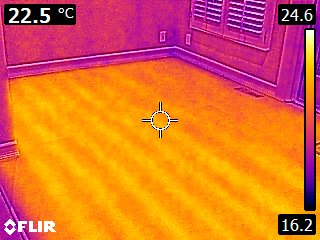


YOUR HOME INSPECTION REPORT
- Finally, following the home inspection you will receive the home inspection report. This is a comprehensive document that outlines the inspector’s findings. It includes detailed information about each area of the home, potential concerns, and recommendations for further action. The report provides clarity on the property’s condition and arms you with the information you need to negotiate repairs with the seller, plan for maintenance, or simply make a more informed decision about the property.
POST HOME INSPECTION CONSIDERATIONS
- In a standard transaction, both parties share a common goal: the seller aims to sell, and the buyer aims to purchase the home. Barring no substantial concerns being brought forth by your Calgary Home Inspector, both parties typically seek to mutually uphold the previously agreed upon transaction.However, it is at this point that as the purchaser you may look to renegotiate the agreement if significant issues are discovered through the home inspection. The decision to renegotiate post-inspection hinges on various factors. Much of it centers around the buyer’s comfort level and expectations. It’s important to remember that no home is flawless, and a nearly impeccable inspection report is rare. The key question becomes: What are the real issues?
- Are the concerns straightforward and budget-friendly to address, or are they substantial and costly to rectify?
- How extensive is the list of issues? Is it just a couple or a lengthy catalogue demanding attention?
- Does any issue demand immediate action, posing potential harm before possession?
While many buyers seek repairs, replacements, or price adjustments, sellers retain the right to refuse requests. Subsequently, it’s up to the buyer to either accept the terms or choose to explore other housing options. In the end, both parties must reach a consensus about addressing issues—whether it’s fixing, replacing, or adjusting the purchase price. A sense of equity is expected from both sides to ensure a harmonious resolution.
If the home inspection was stipulated as a condition in the contract, then it’s also at this point that a buyer has the prerogative to withdraw from the purchase altogether. This will be based on the findings detailed in the home inspection report. It’s important to note that as per the contract, withdrawing from an agreement will require the inspection was conducted by a licensed home inspector. This is true for a home inspection anywhere in Alberta, and not specific to home inspections in Calgary.
What Home Inspection Conditions Can Cause a Buyer to Back Out?
- For better or worse there’s no specific requirements regarding what justifies a buyer the ability to withdraw from a purchase. A buyer can technically decide to use the home inspection condition to call off the deal, even if it’s only for minor issues. Sometimes, buyers may experience second thoughts about the purchase and leverage a minor report item to back out. It’s worth noting that this approach might not align with the ethical considerations of most transactions, given that virtually all homes have minor issues. However, sellers typically have limited recourse in such scenarios.
In the end the goal is to foster an environment where both buyers and sellers can confidently move forward. Whether that’s through adjustments, repairs, or continued exploration of other options between the involved parties.

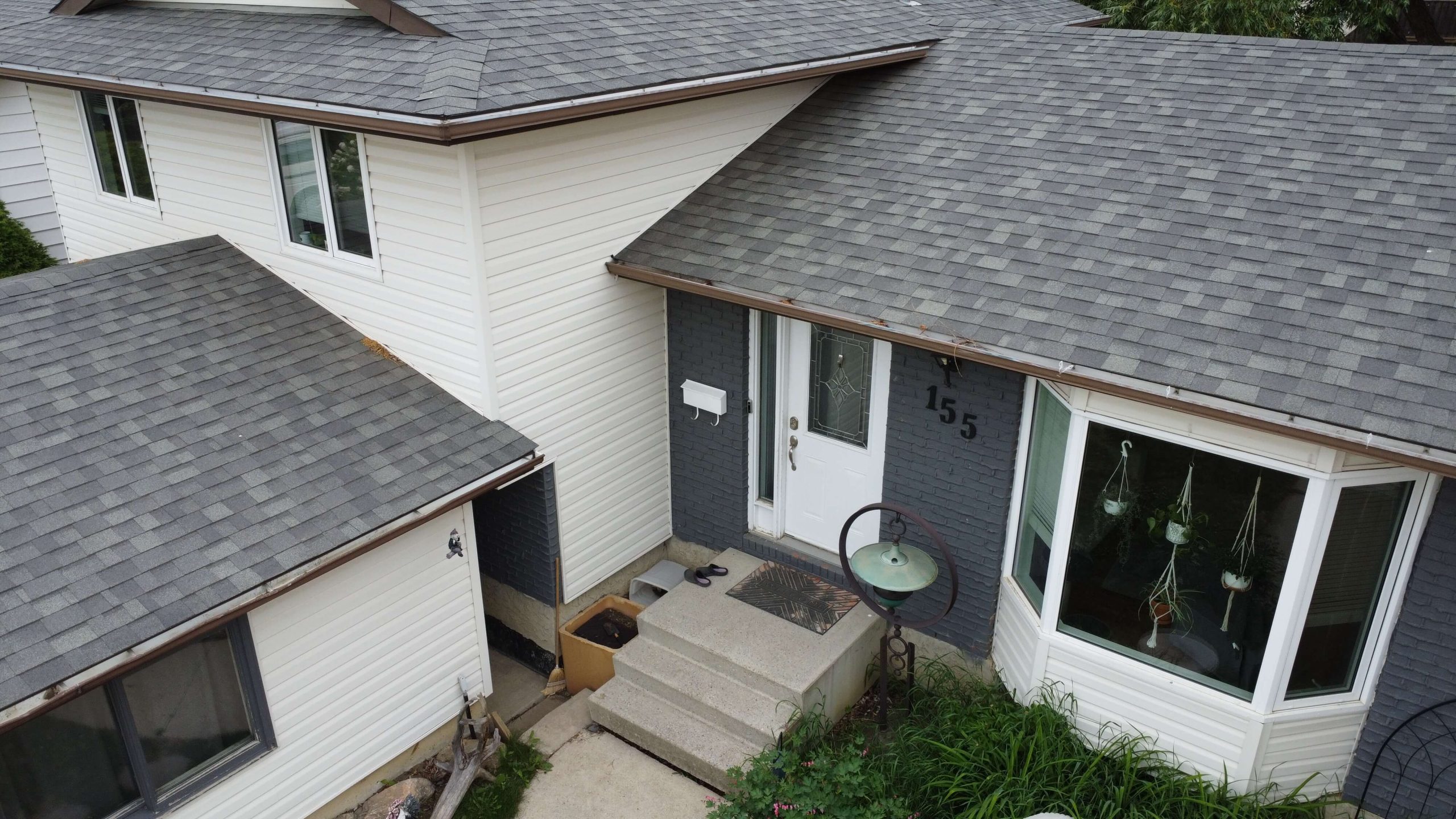
WHY CHOOSE THE CALGARY HOME INSPECTOR CORP.?
- In terms of home inspections in Calgary, we aim to stand out for our holistic approach and expertise in residential construction. Building on a Lead Inspector whose background is in Residential Architecture and holds a range of certifications—including InterNACHI, CAHPI, and IAC2—our inspections offer a deep understanding of building science and construction systems. This comprehensive knowledge allows us to provide you with a complete assessment of your property, highlighting both immediate concerns and potential long-term considerations.
ADDITIONAL HOME INSPECTION SERVICES
- For home inspections, one size doesn’t fit all. Different situations call for different areas of focus during inspection and assessment. That’s why we offer a range of specialized home inspection services tailored to meet various needs, such as:
Pre-Listing Inspections:
A pre-listing inspection is an excellent way to prepare your property for the market. This service involves a thorough assessment of your home’s condition before you list it for sale. By identifying potential issues upfront, you can address them before potential buyers even step through the door. This proactive approach can lead to smoother negotiations and a quicker sale.
Pre-Purchase Inspections:
For prospective homebuyers, a pre-purchase home inspection in Calgary is a must. This comprehensive assessment provides you with a detailed understanding of the property’s condition before you finalize the purchase. By uncovering any hidden defects or concerns, you can make an informed decision about whether the property is the right fit for you.
Maintenance or Annual Inspections:
Just like regular check-ups at the doctor’s office, your home can benefit from routine maintenance inspections. These inspections are designed to catch minor issues before they escalate into major problems. Regular maintenance inspections help you stay on top of home repairs, extend the lifespan of your home’s systems, and maintain its overall value. Routine, and annual maintenance falls behind all too often. Hence why home inspectors have become so widely used in real estate transactions.
New Construction Inspections (Pre-Drywall and Pre-Possession):
Even newly built homes can have issues. A pre-drywall inspection allows you to assess the home’s structural and other hidden components before they are covered up by drywall. This ensures that any potential issues are addressed before the finishing touches are applied. Pre-possession home inspections in Calgary, conducted before you take possession of a new home, offers a final check to ensure that all systems are operating as they should.
11 Month Warranty Home Inspections:
Many new homes come with warranties, but these warranties usually last around 12 months. An 11 month warranty home inspection is conducted shortly before your warranty expires. It allows you to identify and address any issues that may have arisen during your first year of homeownership, ensuring that you can take full advantage of your warranty coverage.
Post-Possession Home Inspections in Calgary:
In the competitive Calgary real estate market it’s becoming more common to waive the inspection requirement on an offer in favor of gaining an edge in securing a deal. However, this doesn’t have to mean you eternally sacrificed the peace of mind that comes from a home inspection. Post-possession home inspections are always available to homeowners who are still looking for a detailed assessment of their home.
Each of these specialized inspection services offers unique benefits. Whether you’re a seller, buyer, or current homeowner, there’s a home inspection service that aligns with your needs. These services not only provide you with peace of mind but also empower you to make informed decisions regarding your property. It’s important to realize that home inspection services go beyond a real estate transaction.
BEYOND THE STANDARD HOME INSPECTIONS: DESIGN CONSULTATION
-
In addition to top-tier home inspection services, we also offer design consultations. If you’re a homeowner planning a renovation, consult with our Lead Inspector about your project. Utilizing his experience in Architecture he’s able to provide insights into your project’s scope, limitations, and potential challenges. This service ensures that your renovation plans align with the home’s structural and functional aspects, preventing unexpected setbacks down the road.
-



WRAPPING UP YOUR COMPLETE GUIDE TO CALGARY HOME INSPECTIONS
- A home inspection is an indispensable tool in the world of real estate, providing a comprehensive understanding of a property’s condition. Whether you’re a homebuyer, homeowner, or real estate agent, this process offers insights that can shape your decisions and ensure a successful transaction. When it comes to performing home inspections in Calgary – we stand to serve as your reliable partner. Delivering holistic assessments and offering both design and technical expertise that extend our value long beyond the window of a home inspection.
